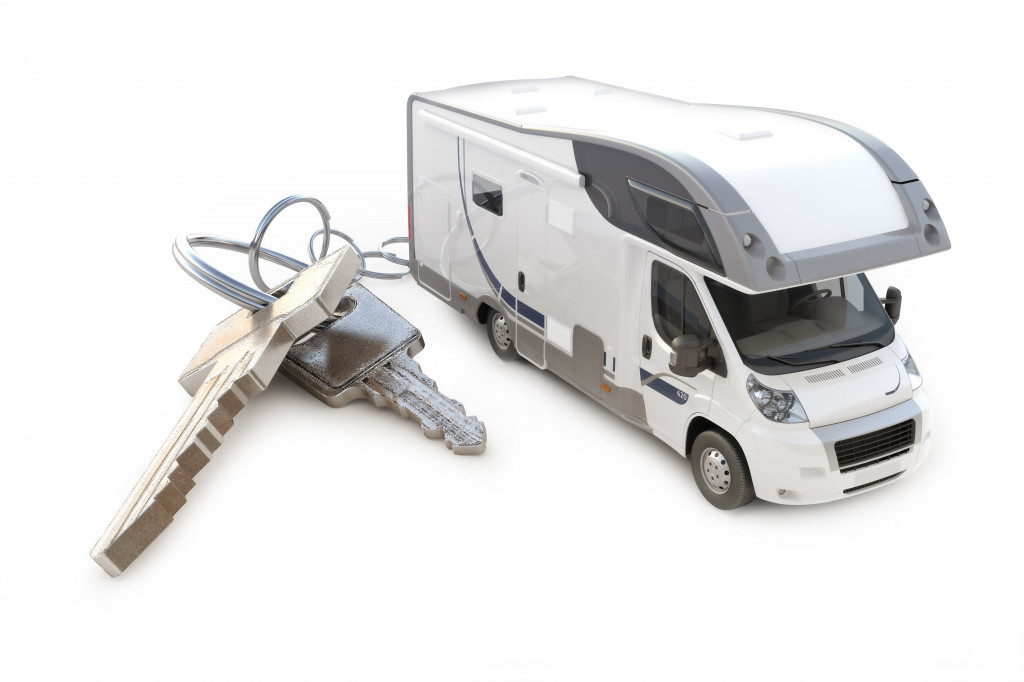- Identify target market to tailor marketing and sales strategy and decide which type of RVs to rent.
- Invest in the equipment for RV rentals, such as GPS systems, bedding, hoses, sewer accessories, and cleaning supplies.
- Develop a rental agreement and policy outlining the terms and conditions of the rental.
- Consider requiring customers to purchase RV rental insurance for extra protection.
- Ensure the rental agreement is easily accessible and stay up to date with trends in the industry.
RV rentals are becoming an increasingly popular way for people to travel and explore the world while enjoying the comforts of home. With the rise in demand for this type of vacation, starting an RV rental business can be an exciting and profitable venture.
However, like any other business, starting an RV rental company requires careful planning and execution. This comprehensive guide will walk you through creating an RV rental business, from determining your target market to securing financing.
Identify Your Target Market
The first step towards starting an RV rental business is identifying your target market. Ask yourself who your ideal customer is, their needs and preferences, and where they are located. Depending on your location, resources, and goals, you may want to target families, seniors, adventure enthusiasts, or corporate clients. Once you have defined your target market, you can start working on a marketing and sales strategy tailored to their needs.
Choose the Type of RVs
Once you have identified your target market, you must choose the type of RVs to rent. Consider the RVs’ size, model, and features that your customers will likely prefer. You may want to offer a range of RVs, from compact motorhomes to luxury coaches, to cater to different tastes and budgets. Research the market demand and availability of RVs in your area before purchasing or signing a lease.
Invest in Necessary Equipment

Apart from the RVs that you will be renting out, you will need to invest in other equipment that will help you run your business smoothly. This includes items such as GPS systems, bedding, hoses, sewer accessories, and cleaning supplies.
You may also want to invest in transfer tanks for gasoline RVs to ensure your customers have enough fuel for their journey. This is a tank that you can fill up with gasoline and transfer to the RV when needed, allowing you to save money on fuel costs.
Develop a Rental Agreement and Policy
Once you have acquired the necessary licenses and permits, you will need to develop a rental agreement and policy that outlines the terms and conditions of your rentals. This document should cover rental rates, security deposits, cancellation policies, maintenance and repair responsibilities, and other essential details. Communicate these policies clearly to your customers to avoid confusion and disputes.
It’s essential to have a rental agreement and policy to protect you and your customers. Here are the basics of developing a rental agreement and policy that will help ensure a smooth and successful rental experience for everyone involved.
Define Your Rental Policies
Start by defining your rental policies, such as the minimum age requirement to rent an RV, the number of days per rental, and the payment requirements. You’ll also need to define your cancellation policy, including any penalties for canceling a reservation. Consider all the possible scenarios in your business, such as damage to the RV and how it will be handled.
Develop a Rental Agreement

Your rental agreement is a binding legal contract between you and your customers. It should outline all of your policies and conditions and clearly state your expectations regarding the use and care of the RV. Include important details such as the pick-up and return times, the condition of the RV at the start and end of the rental period, and a disclaimer of liability on your part.
Consider Insurance Options
As part of your rental policy, you should consider requiring customers to purchase RV rental insurance through your business or a third-party provider. This will help protect you and your customers in the event of an accident or damage to the RV.
Make Your Rental Agreement Accessible
Once your rental agreement is finalized, make sure it is easily accessible. One option is to include it as part of your rental reservation process online. Another option is to provide printed copies at the rental site. Whatever method you choose, ensure your customers clearly understand your policies and can reference them when necessary.
Final Thoughts
Starting an RV rental business can be a rewarding and exciting opportunity for entrepreneurs willing to invest time and effort. You can build a successful and profitable RV rental company by identifying your target market, choosing suitable RVs, and developing a rental agreement and policy. Remember to stay up-to-date with the latest trends and innovations in the RV rental industry and to constantly evaluate and improve your business model to stay ahead of the competition.



